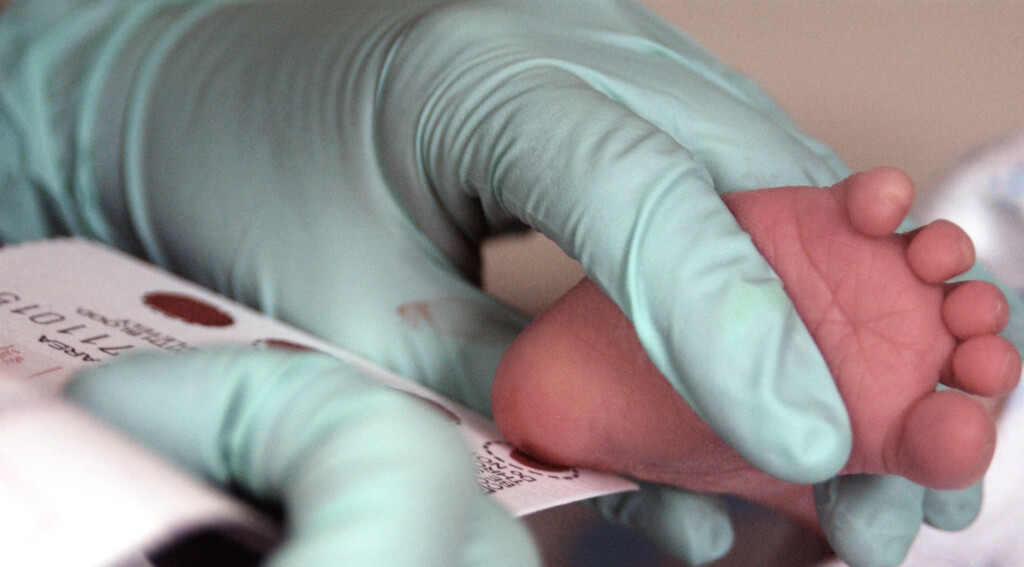

What is Newborn Screening?
Newborn screening is the most common way infants affected by Classical CAH are first identified. Newborn screening is a series of tests done on blood samples from infants within the first hours of life for a number of different disorders that do not manifest themselves immediately and can result in severe mental or physical impairment or death if not detected and treated before signs and symptoms of the disease appear. Screening is the first step in a two-step process. The first screening test indicates a problem may be present, and then a second diagnostic test confirms whether or not the baby has the disease.
The screening test for CAH is sensitive, simple and inexpensive. It involves taking one additional drop of blood from the heel of a newborn at birth, along with the other drops taken for the screens for other disorders. The blood is collected on filter paper and allowed to dry, then sent to a laboratory for testing.
In the majority of cases, CAH is caused by a defect in the gene coding for an enzyme, 21-hydroxylase, important to the production of cortisol and without which adrenal insufficiency results. When 21-hydroxylase is not present, 17-OHP levels rise dramatically. Therefore, what the newborn screening laboratory is looking for is elevated 17-hydroxy-progesterone (17-OHP) levels, an indicator of adrenal insufficiency and CAH.
Infant females with CAH often come to medical attention because the disorder causes affected females to exhibit recognizable genital abnormalities and therefore receive prompt treatment for adrenal failure and salt-wasting. However, newborn males and females that, due to the extent of their genital abnormalities are miscast as males, show no other outward signs of the disorder
and are sent home. Newborn screening allows for these children to be identified as possibly having CAH before they go into adrenal crisis and present for urgent medical attention at a time when they are beyond resuscitation. A second diagnostic test then is ordered and the diagnosis of CAH either confirmed or denied.
Current newborn testing is quite effective in identifying infants with the severe form of CAH, Classical Salt-Wasting CAH. Some babies with Simple Virilizing CAH also are detected through this process. It is rare that a child with Non-classical or Late-onset CAH will be picked-up through this type of testing. To learn more about Non-classical CAH diagnosis, please visit our page on Genetic Testing.
The majority of infants detected through newborn screening have Salt-wasting CAH.
Because NBS is a public health service, what diseases a state screens for varies greatly. Click here to see if your state screens for CAH.
For those who have just learned that their child has CAH, you may find of interest frequently asked questions related to Newly Diagnosed.

CONTACT
2414 Morris Avenue, Ste 110
Union, NJ 07083
Phone: (908) 364-0272
Toll Free: (866) 227-3737
Fax: (908) 686-2019
contact@caresfoundation.org



